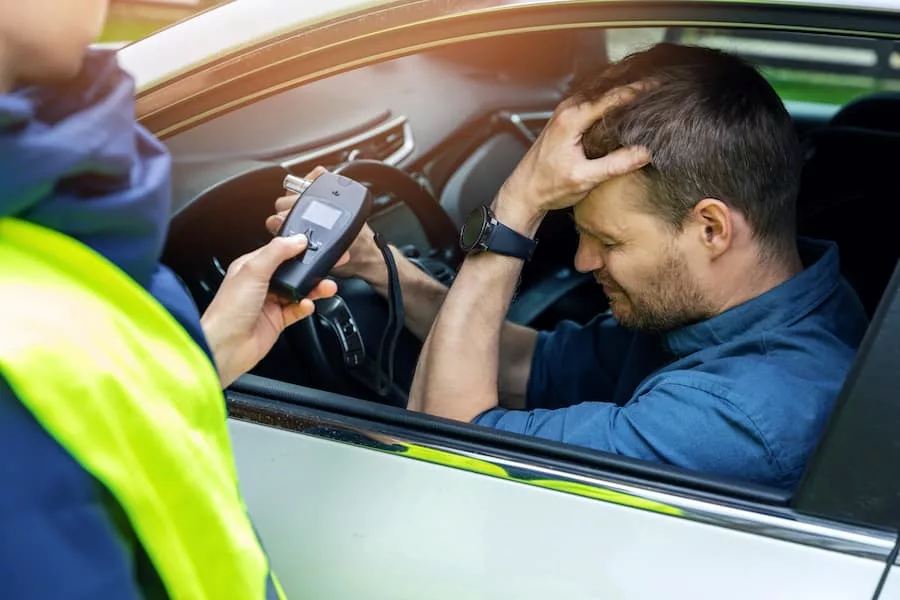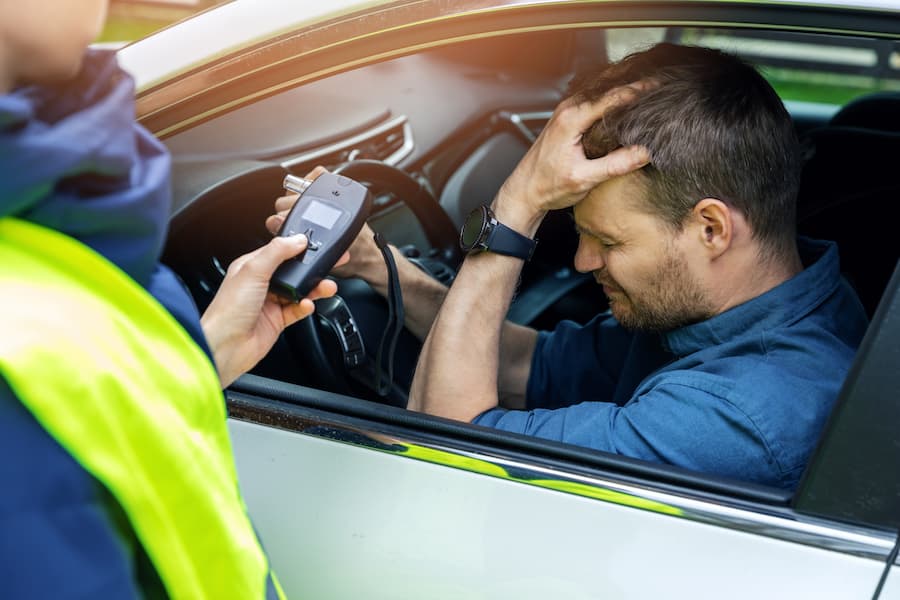Our society is regrettably familiar with the dangers of drunk driving, but what about drugged driving? What does drug-impaired driving look like, and how common is it?
Not only is drug impaired driving illegal, but it also puts drivers and other road users at risk of severe injuries and death. Drivers should always avoid driving while under the influence of impairing drugs or medications. Drugged driving accident victims should know they can hold at-fault drivers accountable for their irresponsible and dangerous decisions. Reach out to a Miami drunk driving lawyer.
This blog provides eye-opening statistics on drug impaired driving that illustrate why government leaders and law enforcement have significant concerns about this growing problem. It also describes which drugs are most likely to impair driving, the challenges of addressing drugged driving, and the consequences commonly affecting drivers and drug-related accident victims. Lastly, we’ll review how drugged driving accident victims can seek accountability and fair compensation for their losses.
Statistics on Drug Impaired Driving
According to the National Institute on Drug Abuse, 11.7 million people drove under the influence of select illicit drugs, including marijuana, in one recent year. Based on a recent analysis of trauma center data by the National Highway Traffic Safety Administration (NHTSA), 56 percent of drivers who were in crashes resulting in serious injuries or fatalities tested positive for at least one drug.
According to a recent NHTSA roadside survey, approximately 22 percent of drivers tested positive for one or more drugs following an oral fluid or blood test. The survey also indicated that illegal drug use was more prevalent among drivers traveling at night. In contrast, prescription or over-the-counter (OTC) drug use was more common among drivers during the day. Many prescription and OTC drugs can impair driving ability just as much as illegal recreational drugs.
In Florida, 747 crashes in which an individual tested positive for drugs occurred in one recent year. These accidents resulted in 420 fatalities, 169 incapacitating injuries, and 351 other injuries.
Which Drugs Can Impair Driving?
Many drugs and medications, even those drivers purchase legally and use responsibly, can negatively affect driving ability. Individuals should always think twice about driving after ingesting any drug. If you must drive after taking a drug, read relevant warning labels or talk to a doctor or pharmacist, especially if taking a new medication or mixing multiple medications.
The following list describes common drugs that can impair driving in one or several ways.
Marijuana
The primary psychoactive component in marijuana is delta-9-tetrahydrocannabinol (THC). According to the Centers for Disease Control and Prevention (CDC), THC affects areas of the brain that control bodily movement, balance, coordination, memory, and judgment.
Specific to driving, marijuana use can:
- Slow reaction time
- Diminish ability to make reasonable decisions
- Distort perception
- Cause drowsiness
- Increase distractibility
Opioids
Opioids are a class of drugs that includes heroin, synthetic substances such as fentanyl, and prescription pain relievers like oxycodone, codeine, and morphine. Some medical providers have historically over-prescribed these highly-addictive drugs as quick fixes for acute and chronic pain, contributing to a widespread opioid abuse epidemic in the U.S.
The Department of Health and Human Services (HHS) estimates that more than 10 million people misused prescription opioids in one recent year, and 1.6 million people had full-blown opioid use disorders. A Journal of Medical Toxicology meta-analysis also demonstrated that opioid use causes memory, decision-making, and coordination impairments, increasing the risk of crash involvement.
Stimulants
Stimulants are drugs that increase alertness, attention, and energy. They can be prescription medicines, such as those used to treat attention-deficit hyperactivity disorder (ADHD), or illicit drugs, such as cocaine or methamphetamine.
While some studies show that prescription stimulants improve certain aspects of driving performance for individuals with ADHD, this is not universally the case. According to one Psychopharmacology study, stimulants can improve tracking, impulse control, and reaction time, but they simultaneously impair working memory and movement perception. Stimulant use can also mask the debilitating effects of sleep deprivation, providing false reassurance that driving is okay when users are too tired to do so safely.
Antidepressants
Doctors primarily prescribe antidepressant medications to treat depression and related mental health disorders, such as anxiety, post-traumatic stress disorder (PTSD), and obsessive-compulsive disorder (OCD). Antidepressants work by affecting the balance of certain chemicals in the brain, such as serotonin, norepinephrine, and dopamine, which regulate things like mood, emotions, and motivation.
One study released by the American Psychological Association showed that drivers who took antidepressants and reported a high number of depressive symptoms performed significantly worse on several driving performance tasks, such as reacting to brake lights, stop signs, or traffic lights.
Sedatives
Sedatives are a class of drugs that depress the central nervous system, resulting in a calming or tranquilizing effect on the body. Doctors commonly prescribe sedatives to treat insomnia or manage anxiety, panic attacks, and other conditions that affect the nervous system. The Food and Drug Administration (FDA) warns that sedatives containing zolpidem, a common ingredient in sleep medications, can continue impairing driving ability and other activities the morning after ingestion.
When drivers use sedatives, they can experience significant drowsiness, slower reaction time, and poor judgment and coordination. According to one study in the American Journal of Public Health, drivers taking prescription sedatives for insomnia doubled their risk of getting in a car crash. Crash risk peaked for sedative users after one to 12 months of continuous exposure, depending on the specific drug. But even after one year on these prescriptions, users still had increased risks of crashing.
Multiple Drugs
Using more than one substance together, or “polysubstance use,” can significantly increase impairment. According to the FDA, mixing two or more drugs can cause unexpected side effects with unpredictable effects on driving ability. For example, mixing a sedative with a stimulant could simultaneously reduce inhibitions and impair reaction time, making driving extremely dangerous.
Other Medications
Common over-the-counter medications can also affect some people’s ability to drive.
For example, the FDA warns that these over-the-counter drugs can impair driving:
- Cold medications
- Allergy medications
- Anti-diarrheal medications
- Anti-nausea medications
- Diet and caffeine pills
- Certain vitamins and herbal supplements
Why Are Drug Impaired Driving Cases So Challenging?
In 2012, the National Transportation Safety Board held a forum to discuss potential solutions to the growing prevalence of drugged driving.
The forum identified several reasons why drug impaired driving is so difficult to detect and prevent:
- Lack of standardized tests. While law enforcement has standardized tests for measuring blood alcohol content, there is no equivalent test for drugs. The methods for detecting drug impairment vary depending on the drug and the jurisdiction. Some roadside chemical tests exist but have relatively limited scope and reliability. Therefore, law enforcement usually needs biological specimens, such as blood or urine, to confirm suspicions of drug impaired driving. To obtain accurate results, laboratories must analyze these specimens using immunoassay tests. These tests are expensive, time-consuming, lacking specificity, and often yield false positives.
- Variability of effects. Unlike alcohol, drugs can affect individuals in different ways depending on the type of drug, the dosage, the ingestion method, and the user’s tolerance level. This variability makes it difficult to detect drug impaired driving to a reasonable degree of certainty.
- Limited research. In a report to Congress, NHTSA admitted that lawmakers and policymakers know less about marijuana’s impairing effects on driving-related skills than those of alcohol. Scientists have completed very few marijuana-related driving studies due to the challenges of studying cannabis under the Controlled Substance Act. The same challenges apply to other illicit drugs, so limited research makes it difficult for law enforcement, prosecutors, and judges to analyze the nature and extent of drug impairment when accidents occur.
- Prevalence of drug use. In one CDC survey, 48.6 percent of Americans reported using at least one prescription drug in the past 30 days. Shockingly, 24 percent reported using three or more prescription drugs during that period, and 12.8 percent reported using five. The prevalence of drug use, both legal and illegal, means plenty of opportunity for impaired drivers to hit the road.
- Legalization. Many states now allow the medical use of marijuana, and more states legalize its recreational use yearly. According to the Insurance Institute for Highway Safety, crash rates spiked in states following the legalization and retail sale of recreational marijuana. Legalization could fool some drivers into thinking impaired driving is acceptable simply because the drug is legal. Furthermore, new users might not appreciate marijuana’s effects on their driving ability.
Legal Consequences of Drug Impaired Driving
Drug impaired drivers can face both criminal and civil penalties for driving under the influence.
Criminal Penalties
Under Florida law, driving under the influence of harmful chemicals or controlled substances that impair a person’s normal faculties is a crime. Harmful chemicals can include any compound, liquid, or chemical that distorts or disturbs one’s auditory, visual, or mental processes. Controlled substances include a lengthy list of drugs, such as opioids, cocaine, methamphetamine, heroin, hallucinogens, and marijuana.
While Florida has legalized medical marijuana for individuals with qualifying medical conditions and physician certifications, it is still illegal for any person to drive under the influence.
Upon conviction for drug impaired driving, drivers could face serious criminal penalties, such as:
- Fines ranging from $500 to $5,000, depending on the number of past convictions
- Imprisonment for ten days to five years, depending on the number of past convictions
- Probation
- Community service
- License suspension for six months to ten years
Civil Penalties
A drug impaired driver can also face civil penalties for injuring a person or damaging someone else’s property in a drugged driving accident. Victims can file claims with the drugged driver’s insurance company or lawsuits against the driver in civil court.
Through civil action, victims can recover compensation for any financial losses they incur due to their injuries. If you get hurt in an accident involving a drug impaired driver, a personal injury lawyer can help you evaluate your legal options.
Compensation Available for Victims of Drug Impaired Driving
Victims of drug impaired driving accidents can seek compensation for their injuries and accident-related losses from several sources, including:
- Personal injury protection insurance claims. Individuals with registered vehicles in Florida must maintain personal injury protection (PIP) insurance, which covers a portion of medical expenses and lost income after an accident, regardless of who is at fault. Unfortunately, PIP insurance has many limitations. Many accident victims incur medical costs that exceed their policy limits, and PIP insurance does not cover intangible losses like physical pain, mental anguish, or emotional distress.
- Uninsured/underinsured motorist insurance claims. It is not uncommon for drug impaired drivers to drive without proper insurance. If you get hurt in a drugged driving accident with an uninsured or underinsured driver, you could get compensation for your losses through an uninsured motorist (UM) or underinsured motorist (UIM) insurance policy.
- Third-party insurance claims. In some circumstances, victims of drug impaired driving accidents can file third-party insurance claims with the at-fault driver’s insurance company. To step outside the usual no-fault system in Florida and file a third-party claim against an at-fault driver, you must have sustained severe crash injuries or incurred losses exceeding your PIP insurance policy limits.
- Personal injury lawsuits. Accident victims of drugged driving accidents can also seek compensation by filing personal injury lawsuits in civil court. The trial process can be lengthy, costly, and adversarial, so you should never attempt this complex process without a personal injury lawyer as your advocate and guide.
- Bureau of Victim Compensation (BVC) claims. The Florida Office of the Attorney General administers a victim compensation program that provides financial assistance to victims of crimes like drugged driving. Victims must meet several qualifications to apply.
Depending on which legal options you pursue after a drugged driving accident, you could recover compensation for some or all of the following accident-related losses:

- Current and future medical costs
- Lost income and job benefits
- Loss of future earning capacity
- Pain and suffering
- Mental anguish
- Emotional distress
- Lost quality of life
- Loss of consortium
In some cases, drug impaired driving victims could also seek punitive damages if clear and convincing evidence shows the drugged driver’s actions exhibited intentional misconduct or gross negligence. A knowledgeable attorney can help you maximize your recovery by evaluating every aspect of your case and identifying all possible sources of compensation. Reach out to a Miami personal injury lawyer.
Related articles
Related articles Related articles Related articles Related articles Related articles Related articles Related articles Related articles Related articles Related articles
Personal Injury
02 Feb 2024
How Long After An Accident Can You Claim Injury?






